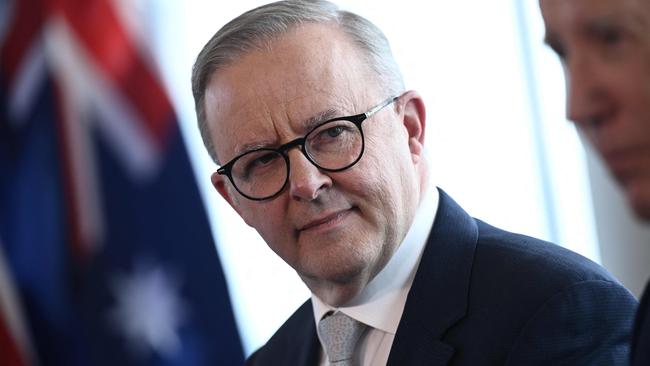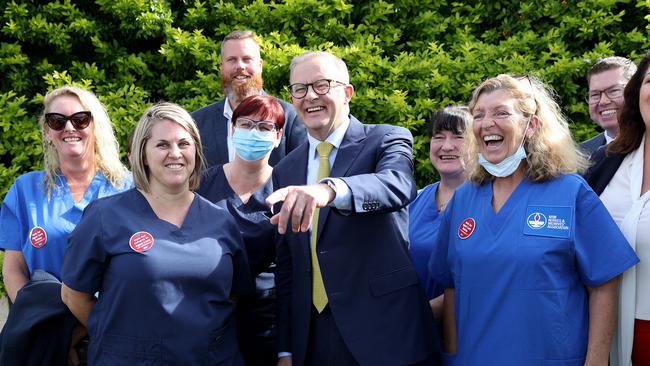Labor accused of breaking election promise with urgent care clinics still not open
The Labor government has been accused of breaking a major election pledge and selling the public a “lie”, with not one urgent care clinic yet running.
National
Don't miss out on the headlines from National. Followed categories will be added to My News.
Not a single new urgent care clinic promised by Labor is up and running one year on from the election, as emergency doctors warn even when operational the facilities will not ease “extreme pressure” on hospitals.
Labor initially allocated $135 million to have 50 after-hours Medicare clinics “up and running” within a year of the Albanese Government taking office, but the cost has since grown to $358.5m over four years for 58 facilities and the delivery timeline has blown out to the end of 2023.
GPs in nominated locations were able to apply for grants to expand their practice, but the majority of successful recipients remain a mystery.
The Coalition has accused Labor of breaking a key election promise and selling the public a “lie,” while emergency clinicians fear the clinics will not ease their burden and could fuel staff shortages that worsen the pressure on hospital emergency departments (EDs).
Australian College for Emergency Medicine Dr Clare Skinner told News Corp urgent care clinics could provide a “boost to primary care” and improve patient access to after hours care and meet basic emergency needs like broken bones and stitches, but the facilities would “not significantly reduce pressures” on EDs.

Dr Skinner said the major source of pressure on emergency staff and beds was actually patients “stranded” in EDs waiting for a space in an appropriate hospital ward, mental health or aged care facility, inadvertently blocking up the system.
“This leads to overcrowding, ambulance ramping and delays,” she said.
Dr Skinner said clinicians across Australia were reporting working conditions are the “worst they have experienced in their careers”.
“These pressures are worse in rural, regional and remote parts of the country,” she said.
Dr Skinner also said it remained unclear where the staff would come from to fill the urgent care clinic roles. Grant applications for GPs seeking to become an urgent care after hours facility closed in every state and territory closed weeks ago.

Opposition health spokeswoman Anne Ruston said the urgent care clinics were “not only a broken promise, but an empty one as well”.
“Labor has sold the Australian public a lie, with experts on the ground advising that the clinics are not going to take significant pressure off Australia’s health system as promised,” she said.
“Amid serious workforce shortages, the Minister for Health is still refusing to answer how they are going to staff these clinics.”
Mr Butler said securing staffing would be left up to the GPs who put in a tender for grant money to expand their service into an urgent care clinic.
Labor claims its suite of policies, including $98.9m to funnel patients with chronic diseases away from hospital and toward GPs, new rebates for longer consults so doctors take on complex patients, funds for chronic wound care and increasing access to primary care for aged care residents, will lighten the load on EDs.





